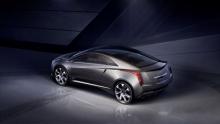Strong potential for electric vehicles is expected in India. Existing problems of pollution and massive population growth in cities and urban areas is expected to help fuel demand for electric vehicles in the country.
Strong potential for electric vehicles is expected in India. Existing problems of pollution and massive population growth in cities and urban areas is expected to help fuel demand for electric vehicles in the country. A December 2011 report by the 4217 Society of Indian Automobile Manufacturers and the 4218 department of Heavy Industry suggests that India’s plan to put 7 million EVs on roads by 2020 might require investments of some US$5.8 billion.
In November 2010, India’s Ministry for New and Renewable Energy unveiled plans for electric vehicles within the Alternative Fuels for Surface Transportation programme. The National Council for Electric Mobility (NCEM) was formed to develop policies to promote electric vehicles in India. Government incentives for EV manufacturers and buyers are planned and in the 2012-2013 budget, the Ministry of Heavy Industry is proposing incentives wirth some $1.55 billion to boost manufacturing of electric and hybrid cars in the country. The fund will help provide infrastructure support and also pay for new research and development for electric and hybrid vehicles.
The ministry has also proposed a customs duty reduction on lithium ion batteries and other imported parts. Since November 2010, EV manufacturers have been able to benefit from a Government financial incentive for each EV sold in India. This scheme will expire in March 2012.
It is expected that the NCEM will formulate policies and regulations including financial and non-financial incentives to customers. But despite growing interest, currently there are only a limited number of market players that are established in the area of EV production.
Several car manufacturers have introduced hybrid technologies, while others have been waiting for a clear policy before they expand to India. Charging infrastructure in India also needs to be developed. Although there have been projects in Delhi and Bangalore that established a number of public charging stations, these are not sufficient to cover the needs of EV buyers. Another challenge is the lack of a complete electricity supply network for the country, which presents a hurdle in building an EV infrastructure.
In November 2010, India’s Ministry for New and Renewable Energy unveiled plans for electric vehicles within the Alternative Fuels for Surface Transportation programme. The National Council for Electric Mobility (NCEM) was formed to develop policies to promote electric vehicles in India. Government incentives for EV manufacturers and buyers are planned and in the 2012-2013 budget, the Ministry of Heavy Industry is proposing incentives wirth some $1.55 billion to boost manufacturing of electric and hybrid cars in the country. The fund will help provide infrastructure support and also pay for new research and development for electric and hybrid vehicles.
The ministry has also proposed a customs duty reduction on lithium ion batteries and other imported parts. Since November 2010, EV manufacturers have been able to benefit from a Government financial incentive for each EV sold in India. This scheme will expire in March 2012.
It is expected that the NCEM will formulate policies and regulations including financial and non-financial incentives to customers. But despite growing interest, currently there are only a limited number of market players that are established in the area of EV production.
Several car manufacturers have introduced hybrid technologies, while others have been waiting for a clear policy before they expand to India. Charging infrastructure in India also needs to be developed. Although there have been projects in Delhi and Bangalore that established a number of public charging stations, these are not sufficient to cover the needs of EV buyers. Another challenge is the lack of a complete electricity supply network for the country, which presents a hurdle in building an EV infrastructure.






